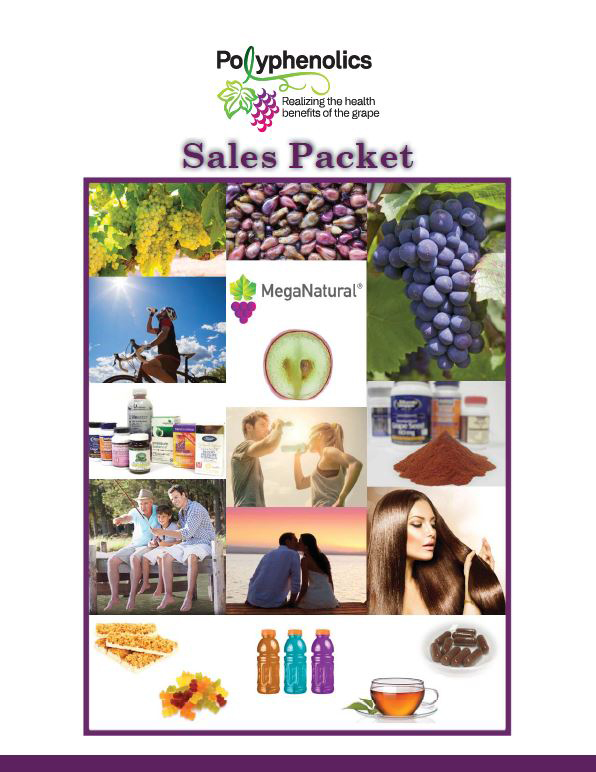Super Grape: MegaNatural® Red Grape SD Kosher
Polyphenolics has developed a patented process for manufacturing a concentrated red grape juice extract. It has isolated intact all the phenolic compounds from a purple “Super Grape” variety called Rubired in its MegaNatural® Red Grape SD Kosher. This superior red wine grape variety developed for the wine industry contains anthocyanins in the juice, flesh and skin of the grape that are more stable than other red grapes, red grape skin extracts and berry fruits. Rubired anthocyanins have a unique diglucoside structure as opposed to the other red grapes and berries which have monoglucoside anthocyanins. The powdered extract contains anthocyanins at concentrations 30 times more than that of Concord grape juice. Only 250mg of MegaNatural® Red Grape SD Kosher is equivalent to 100g of fresh red grapes.
This extract containing a high total anthocyanin concentration of greater than 15% was specifically developed for the well published health benefits of anthocyanins. It is also cost-effective for dietary supplement formulations and nutritionally enhanced beverages as a source of stable anthocyanins for purple color and other active beneficial phenolic compounds including Catechin, Epicatechin monomers and related oligomers.
Published studies indicate that consumption of purple Concord grape juice may be as effective as red wine in reducing the rate of development of atherosclerotic narrowing of the coronary arteries as well as the incidence of potentially fatal coronary thrombosis.
In a study published by Wang et.al (1996), Rubired grape juice was determined to have more than three times the antioxidant activity than other fruit juices measured by ORAC (Oxygen Radical Adsorption Capacity). Human clinical studies have demonstrated that anthocyanin rich foods and beverages inhibit atherosclerosis by their antioxidant and anti-inflammatory properties (1, 2, 3, 4). Anthocyanin supplementation for 8 and 12 weeks improved lipid profile increasing HDL-cholesterol level and decreasing low-density lipoprotein (LDL)(5,6).
References:
- Dalgard C., et al. Supplementation with orange and blackcurrant juice, but not vitamin E, improves inflammatory markers in patients with peripheral arterial disease. Br J Nutr 2009;101(2):263e9.
- Zafra-Stone S, et al. Berry anthocyanins as novel antioxidants in human health and disease prevention. Mol Nutr Food Res 2007;51(6):675e83.
- Poudel, P.R., et al. Phenolic compounds and antioxidant activities of skins and seeds of five wild grapes and two hybrids native to Japan. J. Food Comp. Anal. 2008, 21, 622-625.
- Rockenbach, I.I, et al. Phenolic compounds and antioxidant activity of seed and skin extracts of red grape (Vitis vinifera and Vitis labrusca) pomace from Brazilian winemaking. Food Res. Intern. 2011, 44, 897-901.
- Qin Y., et al. Anthocyanin supplementation improves serum LDL-and HDL-cholesterol concentrations associated with the inhibition of cholesteryl ester transfer protein in dyslipidemic subjects. Am J Clin Nutr 2009;90(3):485302.
- Ahu Y., et.al. Purified anthocyanin supplementation improves endothelial function via NO-cGMP activation in hypercholesterolemic individual. Clin Chem 2011;57(11):1524e33.



